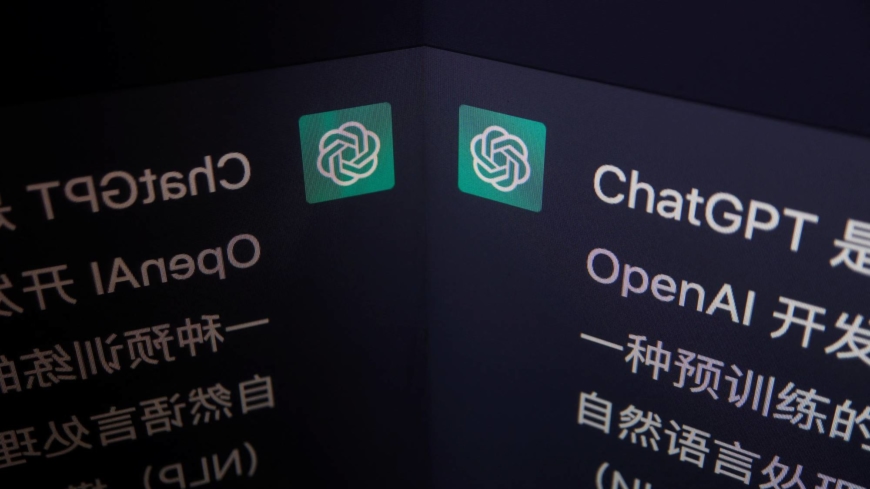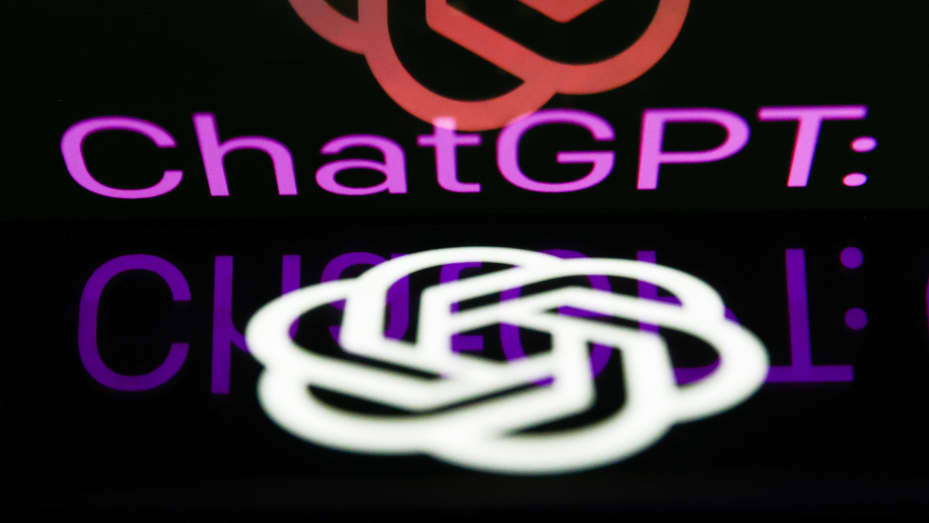ChatGPT-Like Tech Can Be Applied In Many Industries: China
According to Chen Jiachang, chief of the ministry's high-tech division, "(this technology) has the potential to be implemented in numerous industries and fields," applauding its natural language processing capabilities.

The Chinese Ministry of Science and Technology declared after ChatGPT that it will support the integration of AI into Chinese culture and the economy because it recognizes the potential of technologies like ChatGPT. According to Chen Jiachang, chief of the ministry’s high-tech division, “(this technology) has the potential to be implemented in numerous industries and fields,” applauding its natural language processing capabilities.
In the same conference, Minister Wang Zhigang also stated that while all technical advancements have “two sides,” it is important to avoid placing undue ethical restrictions on innovations like ChatGPT. These comments come as Chinese internet companies and investors wait to see how Beijing would regulate products like ChatGPT.
Microsoft-backed Although OpenAI has blocked access to its popular ChatGPT app in China, the app is generating a tonne of interest there, with businesses racing to adopt the technology and introduce competing offerings. Baidu’s ErnieBot, a Chinese ChatGPT competitor, will make its debut in March. CEO Robin Li claims that ErnieBot, a Chinese-language AI chatbot that has been educated on billions of daily search engine searches, is the “state of the art” in this field.
The ChatGPT (Chat Generative Pre-trained Transformer) chatbot was introduced in November 2022 by OpenAI. By combining supervised and reinforcement learning techniques, it has been improved (a transfer learning method). It is based on the huge language models from the OpenAI GPT-3 family.
On November 30, 2022, a prototype of ChatGPT was released. It quickly became well-known for its comprehensive and understandable solutions to questions on a range of subjects. However, its unequal factual correctness has been identified as a significant weakness. After the introduction of ChatGPT in 2023, estimates put OpenAI’s value at $29 billion. ChatGPT is flexible even if its primary objective is to resemble human conversationalists.

Chinese IT companies developing ChatGPT-like technology
The hype surrounding Microsoft’s chatbot ChatGPT, which has raised the stock prices of AI companies and caused a flurry of regional enterprises to introduce competing projects, is already felt in China. China’s internet giants Like Microsoft and Google and smaller start-ups like Baidu, Alibaba, and others have been working on AI projects for years.
While ChatGPT succeeds at more professional tasks like programming and essay writing by learning from a vast amount of data how to respond to user queries in a human-like manner, Chinese chatbots primarily focus on social interactions.
The following is a list of Chinese tech companies that have recently revealed advancements in AI technology:
Baidu
On February 7, Baidu Inc. declared that internal testing of the “Ernie Bot” ChatGPT-inspired project would be completed in March.
Alibaba
On February 8, Alibaba Group announced that it is creating a ChatGPT-like product that is currently being tested internally. Since Damo Academy, its research institute, was founded in 2017, the e-commerce titan claims that large language models and generative AI have been topics of focus.
Tencent
Based on its present technical reserves in foundation model, machine learning algorithms, and natural language processing, Tencent Holdings stated on February 9 that it is researching the ChatGPT-tool technology. The business added that it would keep funding AI research.

JD.Com
On February 10, the e-commerce company JD.Com revealed its intentions to launch ChatJD, a service meant to help other businesses that will be similar to ChatGPT.
NetEase
According to a person familiar with the company, NetEase Gaming intends to use massive language modeling techniques to support its teaching business.
360 Security Technologies Corporation
360 Security Technologies Inc. announced on February 8 that it had language model technology but was unable to say when it would offer any related products.
Technology from Kuaishou
A quick video app The government-backed Paper stated on February 9 that Kuaishou Technologies is researching massive language models, which it will use to enhance its goods like AI customer service.
Electronic Information Industry Inspur
Inspur Electronic Information Industry said on its website for investors that it has long invested in AI-Generated Content (AIGC), which includes applications for technology, mathematics, and algorithms.
Tech Kunlun
According to Beijing-based mobile game developer Kunlun Tech, the open-source ChatGPT Mandarin version will be launched this year, the business announced on its WeChat account. The company, which is based in Norway, declared in a separate statement that ChatGPT would be incorporated into its Opera web browser.
Chinese companies are searching for domestic alternatives
Microsoft-backed OpenAI has barred access to its well-known ChatGPT app in China, but the program is generating a tonne of interest there, with companies rushing to integrate the technology and launch rival products. While locals cannot register for OpenAI accounts to utilize the AI chatbot, some are circumventing the restrictions with the help of VPNs and international phone lines.

The OpenAI models used in the ChatGPT program, which can compose essays, recipes, and complex computer code, are also rapidly being used in Chinese consumer technology applications, such as social networks and online stores. Observers claim that as a result of the tool’s rapid expansion, China is becoming more and more aware of how advanced US artificial intelligence is and how far behind tech companies in the second-largest economy are in their efforts to catch up.
“ChatGPT is generating a lot of excitement. ChatGPT has suddenly made it possible for us to communicate with computers, in contrast to the metaverse, which has a very tough time finding practical applications, according to Ding Daoshi, director of Beijing-based internet consultant Sootoo. It will lead to far speedier, more direct, and more immediate benefits.
Chinese authorities do not forbid OpenAI or ChatGPT. However, users from Hong Kong, Iran, Russia, and some parts of Africa are unable to register with OpenAI. OpenAI stated that it is aiming to increase the accessibility of its services. Although we would prefer to make our technology available globally, the circumstances in some nations make it difficult or impossible for us to do so in a way that is consistent with our aim, according to the San Francisco-based company’s statement in an email.
WeChat, the most popular messaging app in China owned by Tencent Holdings, shut down several ChatGPT-related programs in December, but new ones have since started to appear. Many ChatGPT-enabled WeChat bots have appeared as a result of hobbyists using the platform to build scripts or automated accounts that can chat with users. Customers must purchase at least one account for 9.99 (or $1.47) for 20 questions.
Due to its excellent Mandarin communication skills and ability to encourage Chinese language interaction, ChatGPT has gained some unofficial popularity around the country. By employing proxy tools or current collaborations like Microsoft, which is investing billions of dollars in its OpenAI, Chinese enterprises can acquire tools that allow them to incorporate AI technology into their products.
In December, Proximai, a Shenzhen-based business, released a virtual character in their social game-like 3D app employing ChatGPT’s underlying technology. The Beijing-based entertainment software maker Kunlun Tech plans to integrate ChatGPT into its Opera web browser.

SleekFlow, a Hong Kong company sponsored by Tiger Global, declared that AI would be included in its customer relations messaging solutions. We have clients all over the world, says SleekFlow’s founder Henson Tsai. In addition to other things, ChatGPT does excellent translations, frequently even better than rival offerings.
Censorship
According to Source’s evaluations of ChatGPT, the chatbot is not allergic to inquiries that might be delicate in mainland China. When asked about its opinions of Chinese President Xi Jinping, for example, it replied that it does not hold any personal views and provided a variety of viewpoints.
But, according to other sources checks, some of its WeChat proxy bots have blocked such terms in compliance with China’s strict regulation of its online environment. When a ChatGPT proxy bot was asked the same question regarding Xi, it responded by saying that the talk was prohibited.
Proximai’s founder, Will Duan, claimed that his platform would filter the data made available to users when they interacted with ChatGPT in order to adhere to Chinese laws. Chinese officials have not offered any comments on ChatGPT despite having enacted laws last year to improve oversight of “deep fake” technology. Despite the craze with local ChatGPT-concept stocks this week, state media issued a warning about the dangers of the stock market.
A request for comment from sources was not answered by China’s internet censor, the Cyberspace Administration of China. Analyst Rogier Creemers quotes the Chinese government as saying, “With the regulations published last year, we already see this technology coming and we want to stay ahead of the curve.”

Rivals in China
Some of the biggest IT companies in the nation, including Baidu and Alibaba, have joined the buzz by providing updates this week on the AI models they have been developing, causing their shares to soar. Baidu said this week that “Ernie Bot,” a significant AI model it has been developing since 2019, will complete internal testing in March. Alibaba announced that its research center Damo Academy was also testing a ChatGPT-like technology.
Mr. Duan, whose company has been using a Baidu AI chatbot named Plato for natural language processing, asserted that ChatGPT was at least a generation more potent than China’s current NLP solutions, even though ChatGPT was less proficient in some areas, such as understanding conversation context than those solutions.
A modernized version of OpenAI’s GPT-3, also known as the Generative Pre-trained Transformer, which was initially made accessible in 2020, serves as the basis of ChatGPT. According to Mr. Duan, Chinese companies would most certainly switch away from ChatGPT in favor of local alternatives if they could perform at a level comparable to that of the American-developed product. Yet, there can be long-term compliance issues.
Because of this, he said, “we sincerely hope that alternative solutions may be found in China that we can directly employ, it may handle Chinese even better and it can also better comply with rules.”
Edited by Prakriti Arora




